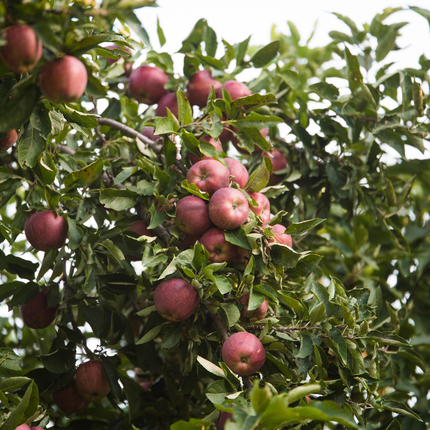By Andrea Hartman, former staff member. Para la versión en español de esta historia, por favor oprima aqui.
Input from producers and a review of the market led the U.S. Department of Agriculture (USDA) to add to and expand the list of commodities eligible for assistance under the Coronavirus Food Assistance Program (CFAP).
Notable additions, which were announced July 9, include alfalfa sprouts, green peas, and multiple varieties of lettuce. A full list of expanded commodities can be found here.
Expansions were also made to seven commodities—apples, blueberries, garlic, potatoes, raspberries, tangerines, and taro—which were previously only eligible for funding if the crop was unable to be harvested, or if it was shipped and spoiled. As a result of this expansion, these commodities are able to see funding for sales losses due to a price decline between mid-January and mid-April as a result of the COVID-19 pandemic.
CFAP was created to reimburse farmers and ranchers for price loss or marketing adjustments due to COVID-19. According to the USDA, Nebraska and Iowa are among the states with the most approved applications, with Iowa farmers receiving the most dollars in total payouts thus far.
The Center for Rural Affairs has recommendations and information for grain and livestock producers, as well as local foods producers. The deadline to apply for CFAP funding is Aug. 28. The USDA has said that CFAP is not a first-come, first-served program, therefore, taking longer to submit an application won’t hurt a producer's chances. However, we encourage applying sooner rather than later.
Applications will be processed through the USDA’s Farm Service Agency (FSA). Producers should call their local FSA office to set up an appointment. Click here for more information on CFAP.
Update
On Aug 11, USDA extended the deadline to apply for CFAP to Sept. 11, and further added eligible commodities. Notable additions include: kohlrabi, microgreens, parsley, and turnips, as well as expansions to livestock, which has expanded to include liquid eggs, frozen eggs, and all sheep. Only lambs and yearlings (sheep less than two years old) were previously eligible.
Furthermore, seven commodities—green onions, pistachios, peppermint, spearmint, walnuts, and watermelons—are now eligible for Coronavirus Aid, Relief, and Economic Stability (CARES) Act funding for sales losses. Originally, these commodities were only eligible for payments on marketing adjustments.





